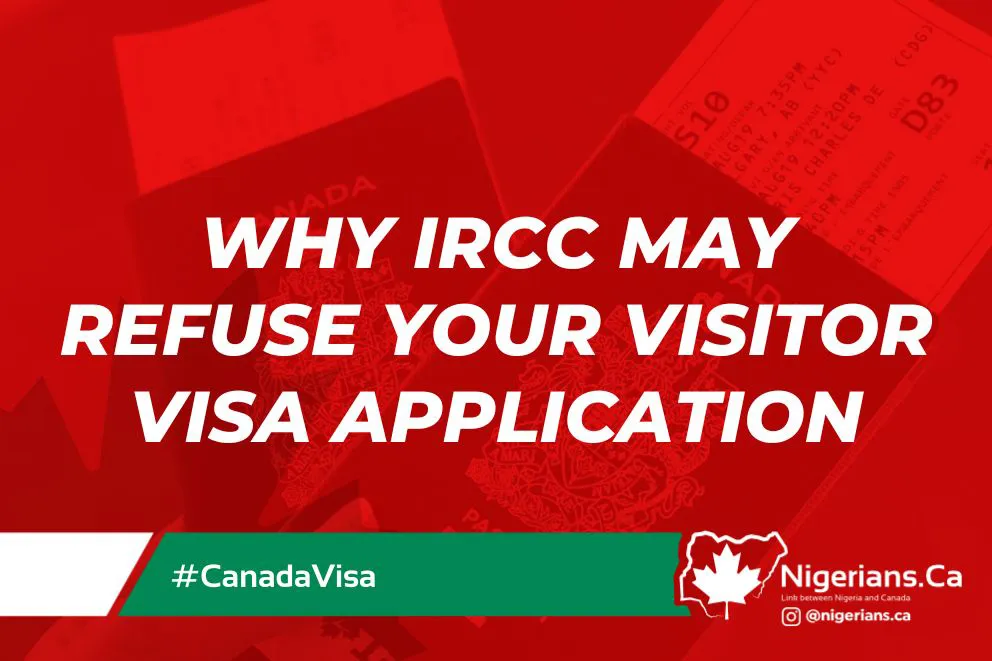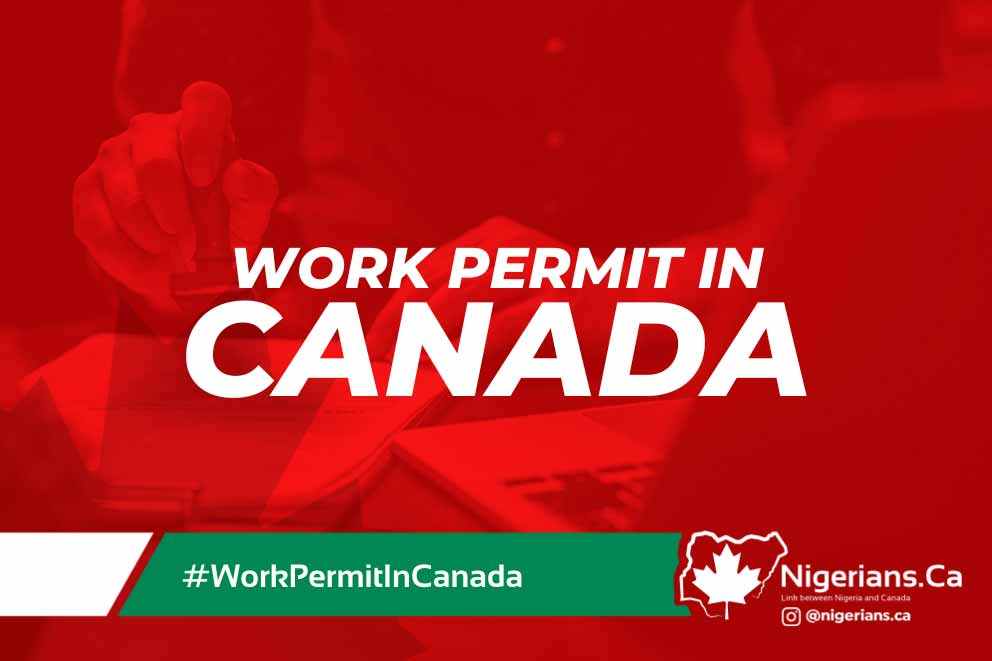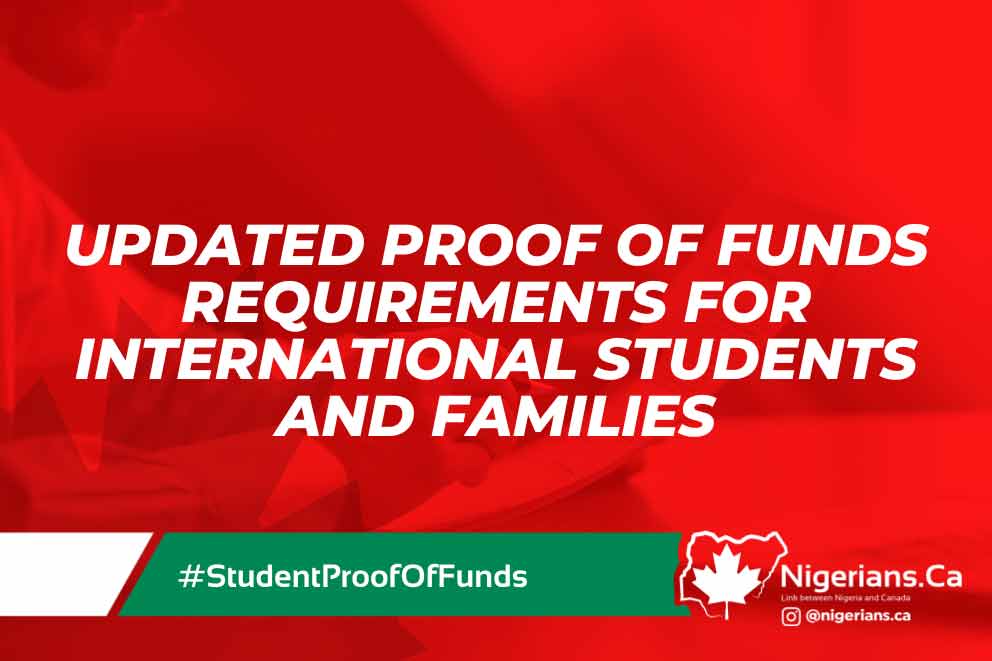Canada is a country where people travel for various purposes such as leisure, visiting loved ones, or engaging in business activities.
Citizens of countries requiring a visa must secure a visitor visa to enter Canada. Nonetheless, Immigration, Refugees and Citizenship Canada (IRCC) may reject a visitor visa application for various reasons.
Failure to provide proper and accurate supporting documents and failing to remit government processing fees, being deemed inadmissible due to a previous criminal history, cnoncerns regarding the applicant's travel record in the past are some of the reasons why your canada visa application might be denied.
Some of The Reasons
Failure to provide proper and accurate supporting documents and failing to remit government processing fees.
When travelling to Canada, individuals must meet strict entry and admissibility criteria, such as submitting essential documents to the IRCC as part of the visitor visa application process. It is advisable for Canada-bound visitors to carefully review IRCC's application checklist to guarantee the preparation of a precise and thorough collection of supporting paperwork. Additionally, prospective visitor visa holders should be punctual in paying IRCC's processing fees to prevent any complications or denials in their application.
Being deemed inadmissible due to a previous criminal history.
Individuals applying for a visitor visa who have a criminal record might face a potential refusal of entry into Canada. Nonetheless, there is a chance that prior criminal convictions may not necessarily prevent their entry. As a result, foreigners applying for a visitor visa should disclose their criminal history and diligently provide a criminal record check and any other relevant paperwork to strengthen their application.
Please be aware that this process may entail compiling documents to demonstrate to IRCC that the applicant has gone through rehabilitation and warrants permission to enter Canada as a visitor. Seeking assistance from an authorized immigration lawyer can be beneficial in navigating through these necessary steps.
Doubts about the intentions of an applicant during their time in Canada.
Failure to clearly communicate the purpose of your visit to Canada to both the IRCC and/or the Canada Border Services Agency (CBSA) may lead to applicants being denied a visitor visa. To prevent any ambiguity, applicants should include additional documentation, such as a detailed itinerary, to assist immigration authorities and border security officers in comprehending the reasons for their visit and their intended activities during their stay in the country.
Applicant failure to demonstrate strong ties to their home country.
Given that visitors are typically granted entry to Canada for a maximum period of six months, a critical aspect of the application process involves demonstrating that they will leave the country upon the expiry of their authorized stay. Hence, if an IRCC or CBSA officer suspects that an applicant may not adhere to this departure requirement, the application could face rejection.
One possible reason for the IRCC's doubt regarding an applicant's intention to depart upon visa expiry is the perceived lack of substantial ties to their home country. To assure IRCC of the applicant's connections to their homeland and their commitment to leaving Canada when required, applicants should furnish supporting documentation, such as the following:
- Proof of employment in the home country (including confirmation letters and pay stubs)
- Information highlighting family ties in the applicant's home country (such as children, parents, or grandparents)
- Evidence of property ownership in the home country (e.g., lease agreements)
Concerns regarding the applicant's travel record in the past.
For individuals with a questionable travel history, obtaining a visitor visa to Canada may pose additional challenges, although it is not insurmountable. Within the context of a visitor visa application, applicants with a history of the following are at risk of visa refusal by the IRCC:
Previous instances of overstaying in Canada Past refusals of Temporary Resident Visa (TRV) applications in Canada To address the IRCC's apprehensions regarding an applicant's prior TRV denials or concerns about a repeat occurrence of overstaying in Canada, transparency is key. Applicants should openly communicate these aspects of their history to the immigration authorities.
Similar to the importance of transparency regarding criminal history and the purpose of the visit to Canada, visa applicants should furnish the IRCC with a thorough account of their past occurrences and demonstrate the corrective measures undertaken. This may involve presenting evidence of compliance with visa rules during subsequent travels and showcasing the individual's commitment to adhering to Canadian immigration regulations.
Providing false information or misrepresenting facts.
To prevent complications related to misrepresentation, applicants must maintain honesty and truthfulness throughout every phase of the visitor visa application process.
It is vital to note that a common misrepresentation concern leading to a potential visitor visa denial is the failure to disclose previous TRV refusals in other countries like the United States.
The applicant lacks legal status in their country of residence.
Before seeking a Canadian visitor visa, applicants must address any unauthorized status concerns in their country of residence. Demonstrating proof of legal residency, for instance, can reassure IRCC that the applicant will adhere to the laws while visiting Canada.
Failure to meet health standards.
Certain foreign nationals, including those seeking a Super Visa, may be required to undergo a medical assessment as part of their visitor visa application process.
Entrance to Canada may be denied based on the applicant's health condition; however, by submitting a comprehensive medical history and successfully completing any mandated medical evaluations, these concerns can potentially be addressed. Additionally, a letter from a qualified healthcare provider affirming the applicant's good health status can be beneficial.
Inadequate demonstration of financial support.
To ensure that foreign nationals have the means to support themselves during their stay in Canada, IRCC and CBSA officers require evidence of financial stability. It is crucial to substantiate financial security by submitting documentation that verifies the applicant's income and assets, including recent bank statements, letters of employment verification, and any other relevant information that can confirm financial stability.





